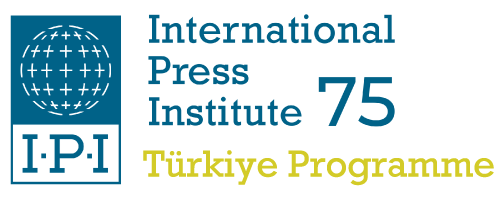The International Press Institute (IPI) is deeply concerned over the announcement of Turkey’s independent news outlet, Gazete Duvar, of its decision to cease operations due to severe financial challenges worsened by Google’s recent algorithm changes. IPI urges Google to immediately reverse the algorithm changes which threaten the survival of Turkey’s independent media.
Gazete Duvar, one of Turkey’s leading independent news outlets, officially announced its decision to cease operations on March 12, 2025, citing Google’s algorithm changes as a key factor in its financial struggles. Since January 2025, several independent Turkish news outlets, including T24, Medyascope, Diken, and BirGün, have reported drastic declines in web traffic following Google’s core algorithm updates. These changes have significantly reduced reader access via Google’s Discover and News tools, leading to a collapse in advertising revenues, which is a vital financial resource for these outlets.
“Google’s dominance of online search provides it with near unchecked power over the visibility and accessibility of news content. Non-transparent changes to algorithms can make or break the financial viability of media companies. This places all online media in a constant state of precarity, whose future is dependent on decisions of big tech companies that can act without any accountability or transparency,” said IPI Executive Director, Scott Griffen.
“We remind Google of its obligations under the U.N. Guiding Principles on Business and Human Rights to ensure its own policies respect and protect the public’s right to access information”, Griffen added. “We therefore urge Google to immediately reverse the algorithm changes and to ensure that any future changes to algorithms that may affect the public’s right to access news and media content are informed by robust risk assessments that include consultation with media stakeholders, in line with Google’s own AI principles and human rights due diligence commitments that apply across its global operations.”
Wide-ranging implications for independent media
After Gazete Duvar’s closure, eight independent media organizations published a joint letter to Google. They stated their plan to take legal action, claiming that Google’s ‘destructive algorithm’ has had devastating consequences for independent journalism and limiting public access to a wide range of news sources. Google says these updates are meant to improve user experience. However, affected outlets argue that the changes mainly boost visibility for a few large platforms. This harms media diversity and makes it harder for independent journalism to survive financially. Clearer mechanisms for transparency and accountability are urgently needed to ensure fair treatment of all media outlets.
The gravity of the situation is undeniable: numerous outlets face closure unless their search visibility is restored.
Speaking to IPI, BirGün Newspaper’s Publishing Coordinator Uğur Koç revealed that during Google’s algorithm updates in late 2024 and early 2025, BirGün experienced an average traffic loss of 60%. Nearly 98% of traffic from Google’s ‘Discover’ and ‘News’ tools disappeared, severing a critical source of audience engagement. Koç explained the financial repercussions:
“These changes quickly led to a significant drop in advertising revenue. The traffic loss also impacted our eligibility for the highest advertisement category set by the Press Advertisement Agency, which requires 250,000 daily unique visitors and 750,000 page views. Due to the changes, we couldn’t meet these numbers, directly reducing our revenue.”
Speaking to IPI, T24’s General Coordinator Sertuğ Çiçek noted that user numbers from Google Discover and News “approached zero” following the October 2024 and February 2025 updates. He also shared graphics with IPI to highlight the trend.
The graphics reveal that the October 2024 updates by Google caused a 33% drop in users and a 42% decline in page views, followed by a 35% drop in users and a 47% decline in page views after the February updates.

User Numbers Accessing T24 via “Google Discover”

User Numbers Accessing T24 via “Google News”
“These changes reduced advertising revenue from platforms like Google by 40%. But the damage didn’t stop there—it also impacted premium advertising revenue from firms, which rely on impressions and clicks. We estimate this decrease to be around 20-25%,” Çiçek said.
Algorithmic uncertainty and media sustainability
Emre Kızılkaya, former vice chair of IPI’s Executive Board and editor at Journo, conducted research for IPI’s Turkey Digital Media Report in 2021, which was among the first to illustrate political bias in Google’s ‘Search’ and ‘News’ algorithms. Speaking to IPI, Kızılkaya emphasized the importance of scrutinizing Google’s algorithmic decisions, particularly regarding Google Discover, a personalized news distribution tool with outsized influence on the Turkish-language news ecosystem.
“The issue brought to light by Gazete Duvar’s closure underscores the arbitrary way Google manages its ‘Discover’ algorithm, now one of the most important news distribution mechanisms. Since Google Discover is far more personalized than other algorithms, its role in amplifying or suppressing independent voices demands rigorous scientific investigation.”
As Kızılkaya notes, without greater transparency and oversight, these algorithmic changes risk further destabilizing Turkey’s digital journalism landscape.
The first major victim of Google’s algorithm changes
Founded in 2016, Gazete Duvar has been a vital voice in Turkey’s independent media landscape, offering in-depth reporting and perspectives often absent from mainstream outlets. Its closure represents a profound setback for press freedom in Turkey, a country where independent journalism already faces immense challenges from government restrictions, economic pressures, and legal threats.
IPI stands in solidarity with the media organizations affected by these developments. We urge Google to engage in transparent and constructive dialogue with independent outlets and to implement measures that ensure diverse and equitable access to digital news platforms.

